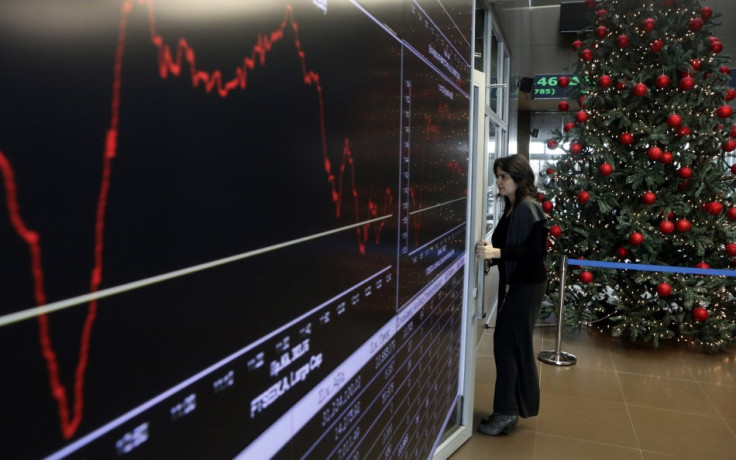European Stock Markets Forge Ahead on Fiscal Cliff Hopes

European stocks rose firmly in the early minutes of trade as signs of progress in the US "fiscal cliff" talks between the White House and the Republicans boosted global economic hopes.
The pan-European FTSEurofirst 300 share index rose 0.3 percent to 1,135.30 points, while Britain's FTSE 100 gained 0.2 percent. Italy's FTSE MIB climbed 0.5 percent while Spain's Ibex gained 0.3 percent.
France's CAC-40 and Germany's DAX were up 0.4 percent each.
The single currency remained firm against the dollar, trading at $1.3168.
Most Asian markets had ended higher earlier, as the optimism surrounding budget talks added to upbeat sentiments on the Liberal Democratic Party's (LDP) electoral victory in Japan.
The Nikkei average closed 0.96 percent higher at 9923.01 while South Korea's KOSPI rose 0.51 percent to 1993.09. Hong Kong's Hang Seng traded 0.22 percent to 22465.20 towards the close, while Mainland China's Shanghai Composite Index was up 0.1 percent to 2162.46.
Market players turned positive on the US budget negotiations following reports that President Barack Obama offered a counter-proposal to the Republicans that made a major shift in the White House's stand on tax hikes for the wealthy. Reuters sources said that the Republican House of Representatives Speaker John Boehner has welcomed the move, although with reservations.
The latest step is considered as concrete action in the right direction to avert the looming tax hikes and spending cuts that threaten to push the economy into recession.
Japanese stocks extended the previous day's gains on stimulus hopes after the LDP won two-thirds of the seats in the lower house election. All eyes are now on the Bank of Japan (BOJ) as it meets for a policy review this week, under pressure to initiate further monetary easing measures.
But analysts suggest that despite the new government's pro-stimulus stand, the central bank may choose not to take up aggressive action for the moment.
Capital Economics' Japan Economist David Rea notes that the "increased political pressure could mean substantial further easing is likely in 2013, but this would not mark the dramatic change in policy that markets increasing seem to expect".
"We think the Bank's Policy Board will leave policy unchanged this week, but will extend the ceiling on its asset purchase programme by ¥12 trillion in January".
The yen remained weak against the dollar, encouraging investors to buy exporter stocks on hopes of earnings boost.
Official data showed that eurozone exports weakened in October from the previous month, indicating that a slump in external demand as global economies look to prioritise spending. The drop in shipments has triggered concerns that trade may not assist the continent's growth in the coming months.
Chinese markets swung between gains and losses, weighed down by property stocks after data showed that home prices in the country increased in November, sparking speculation of stiff government action to control inflation in the sector.
© Copyright IBTimes 2024. All rights reserved.





